Michael Loftman: the making of a master teacher and coach
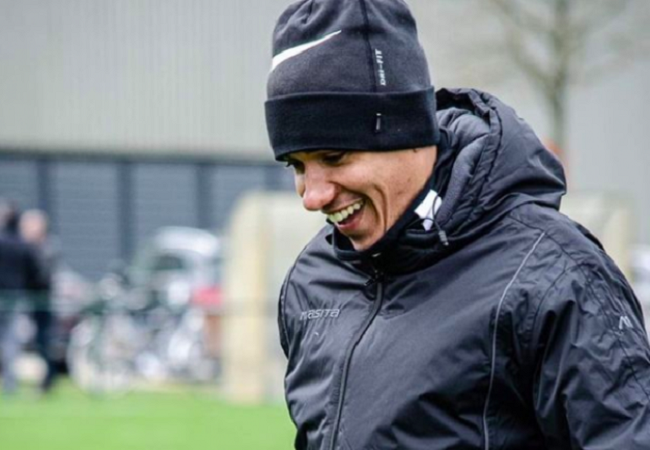
When he was 7, Michael Loftman had a big argument with a teacher at school.
According to Michael, then only a wee lad, the teacher had broken a cardinal rule in the classroom, a rule the teacher had made herself.
The rules made it clear that there would be eating in class under no circumstances.
Yet here she was, in front of a bewildered Loftman, eating an orange. Before the Vitamin C from the fruit could start flowing in her system, a bewildered Loftman had already registered his displeasure. Like a pup with a juicy bone, it was not a conflict he would let go of easily.
“When I was 7, I had a big argument with my teacher, she said we weren’t allowed to eat in class, but she was eating an orange,” Loftman recalls. “It bothered me so much that it became a big argument which I took home to my mom and said, ‘look, this teacher is doing this, and I think it’s unfair’.”
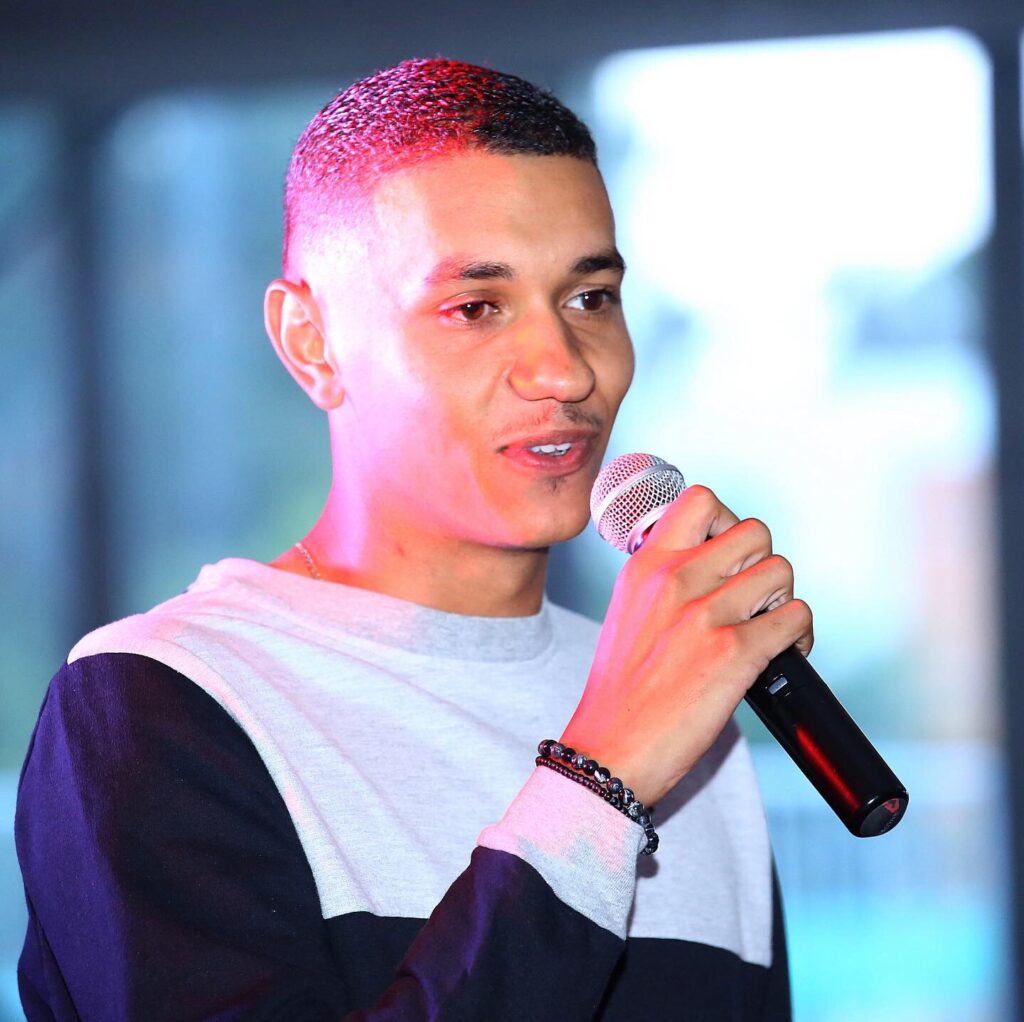
It would not be the last argument Loftman would have with a teacher. At a young age, he already had a solid moral compass, a heightened ability to distinguish between right and wrong. Of course, a child questioning a teacher is a sign of petulance and indiscipline to some. For Loftman, however, it signified a willingness to stand up for what was right, even at such an early age, even though other classmates preferred to watch meekly as adults disregarded rules they had set themselves. To him, that fire in his little belly was a sign of leadership and not stubborn defiance.
The desire to teach and to lead would stay with Loftman even through his years of adolescence. As he had shown as a young boy, he was a born teacher.
“It started as community coaching in the park for a company called Foundation Sports; then it turned into going to schools to do coaching. Then I was a PE teacher for a year, where I was teaching sports the whole day, which was a great experience,” he says.
While Loftman had found inspiration to be a teacher in the classroom, it was in the sports field where he found the other passion that would define his life and future. The son of a football-mad father, it was not long after he was born that the sports bug that bit his father would also nibble at him.
“I played football from when I was 3 or 4. My dad was playing or coaching on Saturdays and Sundays. I’ll be at the football ground or playing football five or six days a week,” he recalls.
Despite spending such a large percentage of his childhood on the football pitch, it did not take long for Loftman to see that he would not make it into the professional ranks. There were just too many young players that seemed better and sharper than him. Besides, other pursuits that come with puberty were now distracting him. He was only now discovering the joys of the opposite sex. His romance with football would resume later but in a different form.
“I didn’t have the mindset of someone who wanted to be a professional athlete. Players were so ahead of me. At 18, I got back to it but from a coaching perspective. At 18, I got a coaching job in the community,” he says.
As a young man finding his way in the dugout, Loftman had brushes with some of the finest talents that England had produced over the last few years.
“While studying Sports Science, I worked at Watford academy; Jadon Sancho was an eight-year-old at the time. I went to Tottenham Hotspur, and I spent two and a half years. I ran programmes to find players that could get into the development side. I went to Dagenham & Redbridge. I worked with Micah Hyde, who played in the EPL; he was a leader. He took me under his wing; he was harsh and strong with me. He made me understand what winning was,” he says.
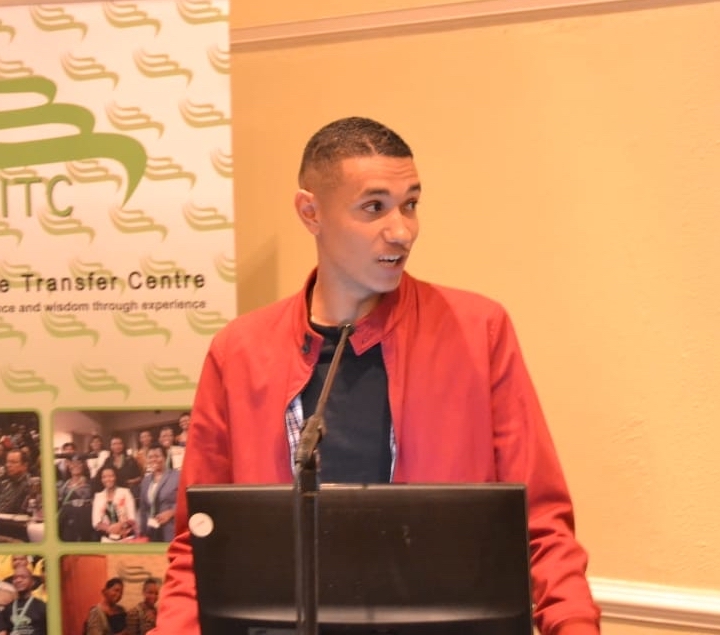
Nathan Philip, a former Chelsea, Brentford and West Ham academy coach, recalls how Loftman had an impeccable work ethic and an eye for detail even at a young age.
“We met when we were doing our UEFA A License. He’s very knowledgeable. I must admit that there are not too many coaches I’ve worked with who would look at detail like Michael does. He researches a lot,” Philip says.
From the time that he had a bust-up with a teacher that did not want to follow her own rules, Loftman had always shown courage and a willingness to go where others would never dare.
“I’ve always done some weird things in my life. I missed my graduation because I had an opportunity to DJ in Ayia Napa in Cyprus. I was like, ‘opportunity is here’. I’ve sacrificed things for growth. I’m addicted to growth. I don’t want to be around people who are not challenging,” he says.
Perhaps this yearning for growth drove Loftman to leave his relatively cushy position as a young coaching upstart in the British Isles and head to Zambia, in the toe of Africa, where he thought he had an opportunity to take his career a notch higher.
“I was doing my badges while studying. Once I had my Masters and Uefa A, I decided it was time to go abroad. I went to Zambia on holiday. I met an agent and coach while I was there, and they advised that I had to be living in Zambia for me to have a chance of being hired in the country. I left my job and moved to Zambia; I left my family in the UK to go to Lusaka. I made friends quickly in Zambia; the social aspect was straightforward. I got a job in Zambia as a technical director. The coach later left, and I was given the head coach job,” he says.
Zambia might have been sunnier than his native UK, but things were far from bright for the young Loftman. He had arrived as a technical director, but he had now been thrown into the deep end as a coach in his mid-twenties, dishing out instructions to men almost a decade and a half older than him.
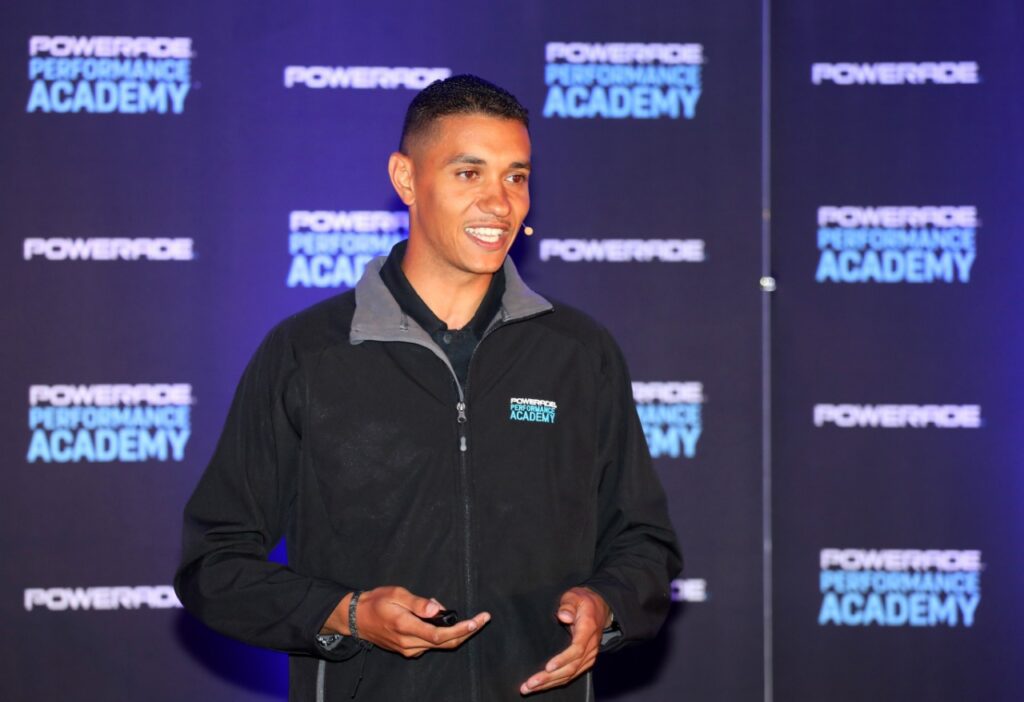
“I was 25/26; my captain was 38. I wasn’t ready for it. A commentator said, ‘Sidney was old enough to be my father’. It was a huge learning experience. I lived in a hotel for two months until they found me a place of my own,” he says.
It was during this tumultuous time in his life that he took a break, crossing over to neighbouring South Africa. The only taste he had of SA before then was through its music, although the young part-time DJ did not know it. When he arrived in SA, he thought he had come to a place his whole life had been preparing him for. It was love at first sight.
“I came for a week to visit; I stayed in Braamfontein. The first day I was here, I was recovering. I fell in love with everything, the people, the music, and the culture. I used to DJ; I played Black Coffee before I knew he was South African. My first girlfriend was South African. Maybe I was being set up for South Africa. After that week, I went back to Zambia, sold all my furniture, and returned to South Africa. I decided this was the place I wanted to live in,” he says.
Life was not all rosy for Loftman when he came to South Africa. Leaving Zambia in a huff meant he had little to his name. He was far from home, and for a few months, he would survive by the skin of his teeth.
“I went without money for two months. I came to South Africa, and I was hustling for three months living off my furniture money. I got in touch with nearly every club in South Africa.
“Glynn Binkin called me a week before my visa expired; there was a youth football job. Warriors FC appointed me as technical director. I was over the moon; I just wanted to be in South Africa. It was the happiest moment.”
But what made a London boy, born to a Jamaican father and a British mother, fall head over heels in love with South Africa so quickly.
“There’s a human element in South Africa; you lose the human element in other places,” he explains.
In his beloved adopted South Africa, Loftman’s rise would be meteoric. The man who would take his career to the next level would be another young coaching maverick – Rulani Mokoena.
“Rulani then came for me and took me to Pirates. Pirates were an unbelievable experience for any coach, a steam cooker – a high-pressure environment. It was a great environment,” he says.
Mokwena recalls how, after asking for a match report before Pirates took on Kaizer Chiefs, he received an in-game masterclass analysis from Loftman.
“We met and connected through social media through mutual contacts,” says Rhulani. “I requested a match report [Pirates was about to play Kaizer Chiefs in a derby]. He did it, and it was unbelievable; I still have a hard copy. I took it and showed it to the Orlando Pirates chairman, he was impressed by the standard and quality of the information, and he offered him a job. We won the match convincingly, 3-0, I think.
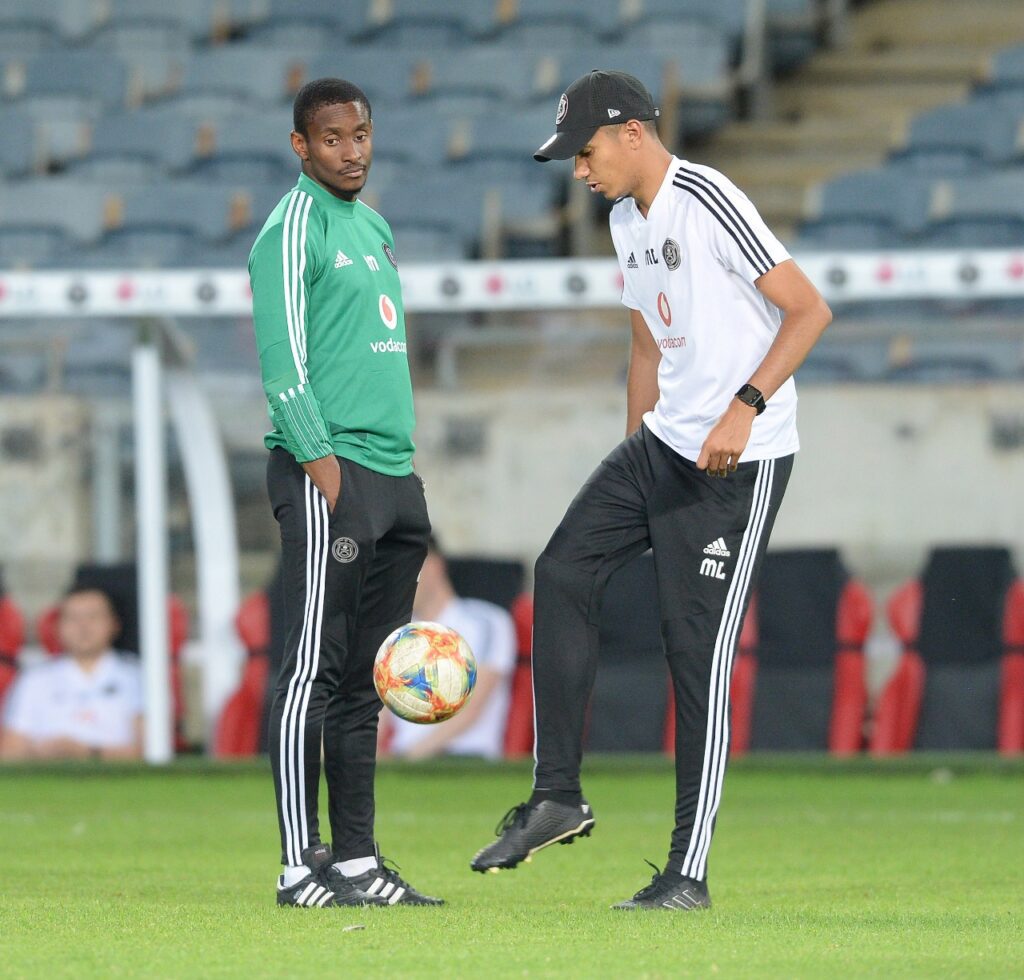
“His attention to detail, curiosity, and work ethic are incredible from a football perspective.”
While Pirates is a prestigious job, Loftman’s star would continue even beyond the Buccaneers’ prestigious ship. Soon he would find himself as a coach and analyst at Lommel SK in Belgium. After parting ways with them, he would not find himself unemployed for too long with his name now properly established. In September, when Carlos Queiroz took charge of the Egyptian national team, Loftman joined his coaching staff as a coach-analyst.
When he quit his job in North Africa just four months after his appointment, Loftman highlighted his desire to return “home” to South Africa on the cusp of the continent’s most prestigious tournament. That decision hammered home that now, the young coach identifies more with South Africa than his native Britain for all intents and purposes.
“He feels more South African than he does English,” says Mokwena.
Indeed, Loftman has not only fallen in love with the people the football and culture in South Africa but its football too. He is one of the brigades of young coaches in Mzansi who want to see the nation regain its position at the top of the footballing food chain.
“Remember when Tottenham played Pirates and Pirates won 2-1 playing South African football. I want to go and do that with a South African team. I don’t want to play European football and beat them; I want to play South African football – a winger free to do multiple stepovers. I like the team to keep possession and have freedom on the ball,” the former Bucs coach says.
Mokwena, a man Loftman worked with closely at Pirates, believes that Loftman has all the ingredients needed to oversee the changes he wants to be made to player development in Mzansi and become a top coach as well.
“We had a player development programme at Pirates, which he oversaw. He’s solid from the education side. He has strong character and personality, and I think he will be a top coach. His love for the game and passion would not allow him to sit too much in the office,” Mokwena says.
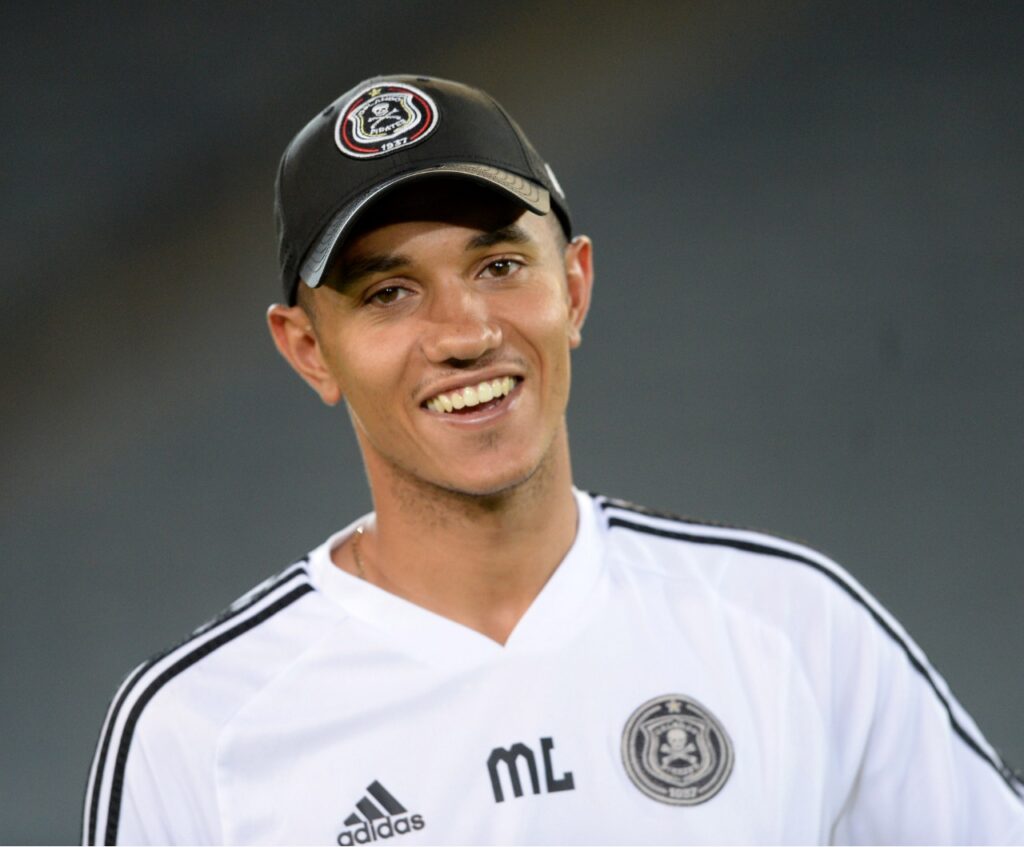
It is a sentiment shared by Peter van der Veen, the former Holland Under-20 coach.
“He came in as coach-analyst, so we worked together. He’s nice to work with; he has qualities above football. He sees the game; he can analyse; he knows solutions when the team is not playing. He improved us,” Van Der Veen explains.
After serving a lengthy period serving as an apprentice to some of the world’s best football minds, Loftman also believes he is ready for the step-up.
“I’ve got experience working Carlos Queiroz and the Egyptian National Team, The City Football Group, Orlando Pirates, Tottenham Hotspur, Head Coach experience in Zambia, as well as UEFA and Masters level university education – all those are ingredients for me to become a top coach in South Africa,” he says.